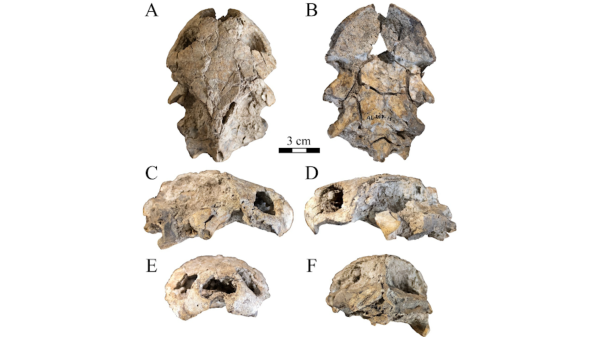A new center at Arizona State University aims to help us better understand the history of early stars, galaxies and black holes to enhance our knowledge of the universe.
The Beus Center for Cosmic Foundations was founded in the School of Earth and Space Exploration through a generous gift by philanthropists Leo and Annette Beus.
“We have witnessed great outcomes at ASU and are grateful to be a part of this new opportunity to advance cosmic exploration,” said Leo Beus, co-founder of Beus Gilbert McGroder PLLC who has practiced law in the Valley for 51 years. “This investment enables us to support highly skilled researchers in their quest to understand the beginnings of stars and galaxies.”
In addition to establishing a new center, the $8 million endowed gift includes a named professorship and named chair.
“This center provides a legacy we can leave to our children and grandchildren who love exploring the stars as much as Leo and I do,” Annette Beus said. “It’s always rewarding to see how our investments advance the university’s mission.”
The Beuses have made a lasting impact on Arizona State University through their philanthropic investments that include the Beus Center for Law and Society, Sun Devil Athletics, the Beus Compact X-ray Free Electron Laser (CXFEL) Lab in the Biodesign Institute and numerous scholarships to increase student access to a college education.
“Leo and Annette Beus are longtime supporters of ASU and are critical to the university’s mission and success,” ASU President Michael M. Crow said. “This recent investment will advance current research in star formation as well as ASU’s world-renowned space program.”
ASU researchers have access to the most advanced astronomical observatories globally and in Earth’s orbit. The Beuses’ investment will help researchers understand what first stars were like and how they interplay with their galactic environments. In conjunction with ASU engineers and instrument developers, the center unites a premier group in the development and deployment of technologies and techniques to enable transformational observations of the universe.
"The Beus Center for Cosmic Foundations will allow faculty and students at ASU to explore the origins of the universe like never before,” said Kenro Kusumi, dean of natural sciences in The College of Liberal Arts and Sciences. “As a leader in cosmology and astronomy research, the School of Earth and Space Exploration continues to create new technologies that revolutionize our ability to understand the universe."
School of Earth and Space Exploration Director Meenakshi Wadhwa said the center builds upon ASU’s tradition of leading major advances in understanding the formation of galaxies and stars.
“The Beus Center will help to advance this research into the next era of discovery — through cutting-edge observational and theoretical astrophysics, as well as the development of innovative new technologies and tools for such research,” Wadhwa said. “In doing so, it will play a key role in advancing a core mission of our school by combining science and engineering for exploration and discovery.”
Judd Bowman, professor in the School of Earth and Space Exploration, will serve as the inaugural endowed chair of the center and is recognized for his team’s pioneering instrument, opening new views of the birth of stars that was named among the top 10 "Breakthroughs of the Year” by Physics World.
“This generous gift from the Beuses enables ASU researchers to make new discoveries into one of humanity’s oldest questions: What is our place in the cosmos?” Bowman said. “We’re looking forward to accelerating our research into one of the most mysterious events in the history of the universe — the birth of the first stars.”
Allison Noble, an assistant professor in the School of Earth and Space Exploration, will serve as the inaugural endowed professor.
“There are still so many unanswered questions in the field of galaxy formation and evolution, and the Beus Center for Cosmic Foundations will bring together experts at ASU and attract researchers from around the world to investigate each transformational epoch in the history of the universe — from the birth of galaxies at cosmic dawn, to their peak assembly at cosmic noon, and to their final stage today at cosmic dusk,” Noble said.
More Science and technology

New research by ASU paleoanthropologists: 2 ancient human ancestors were neighbors
In 2009, scientists found eight bones from the foot of an ancient human ancestor within layers of million-year-old sediment in the Afar Rift in Ethiopia. The team, led by Arizona State University…

When facts aren’t enough
In the age of viral headlines and endless scrolling, misinformation travels faster than the truth. Even careful readers can be swayed by stories that sound factual but twist logic in subtle ways that…

Scientists discover new turtle that lived alongside 'Lucy' species
Shell pieces and a rare skull of a 3-million-year-old freshwater turtle are providing scientists at Arizona State University with new insight into what the environment was like when Australopithecus…